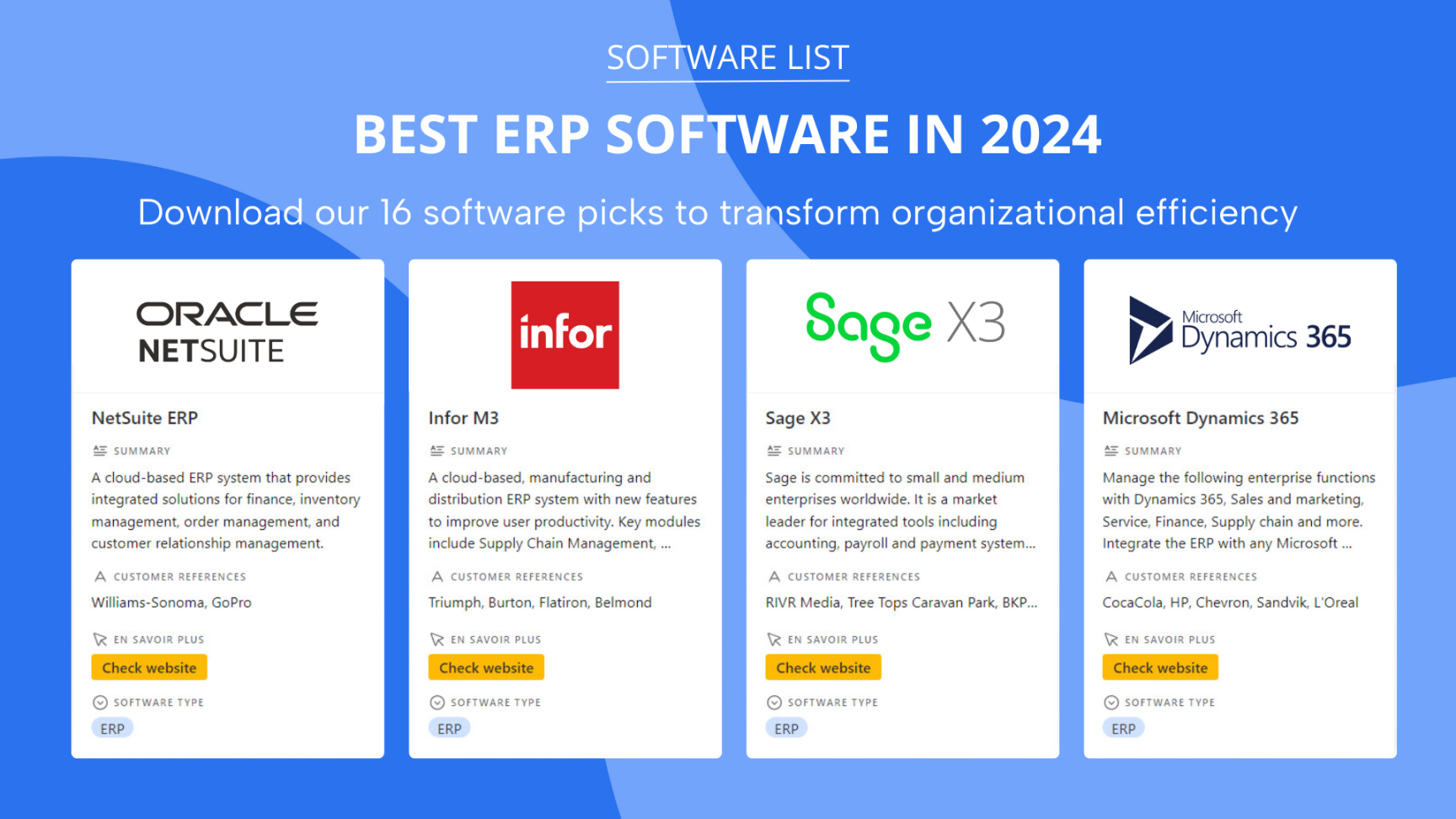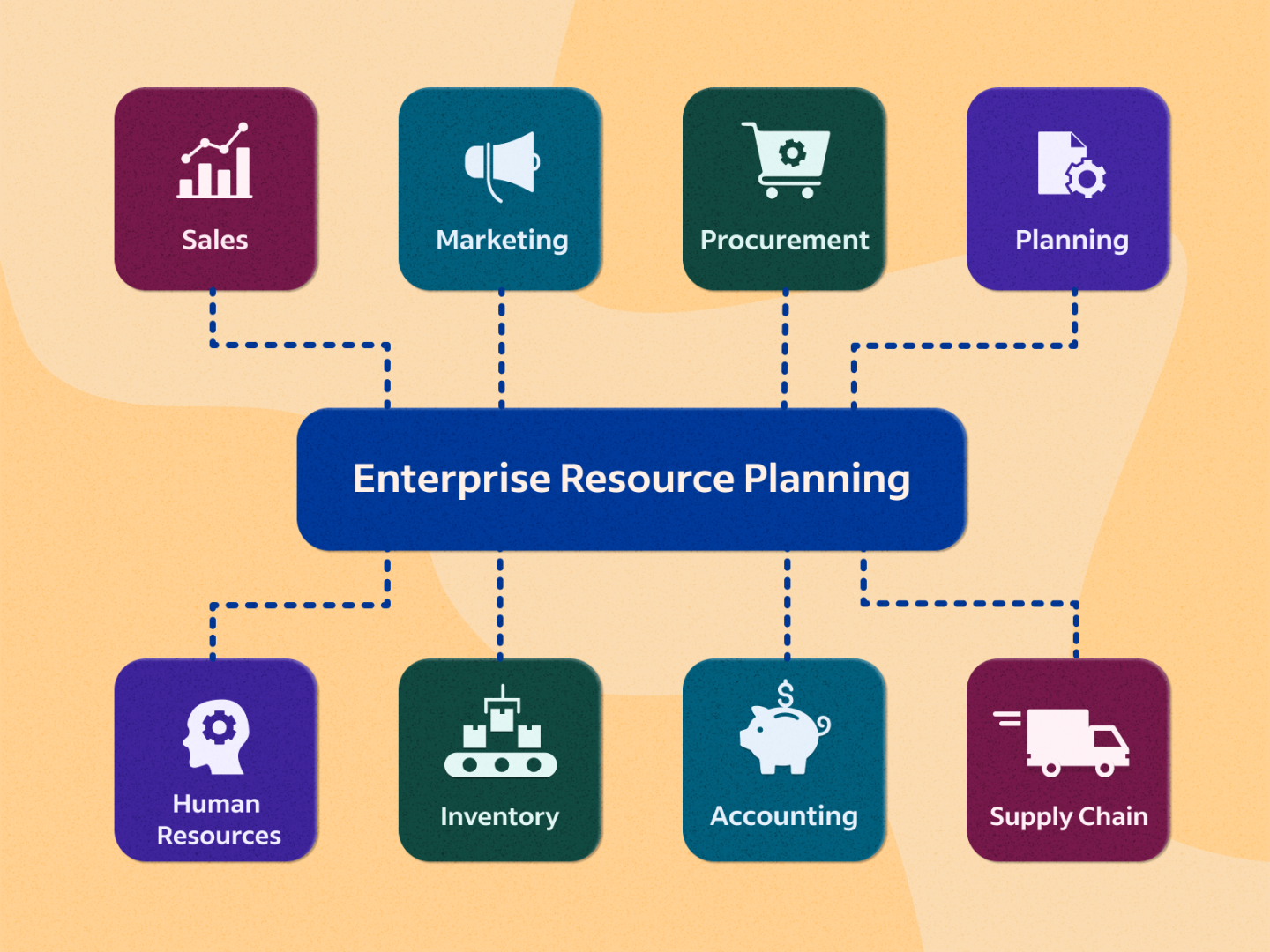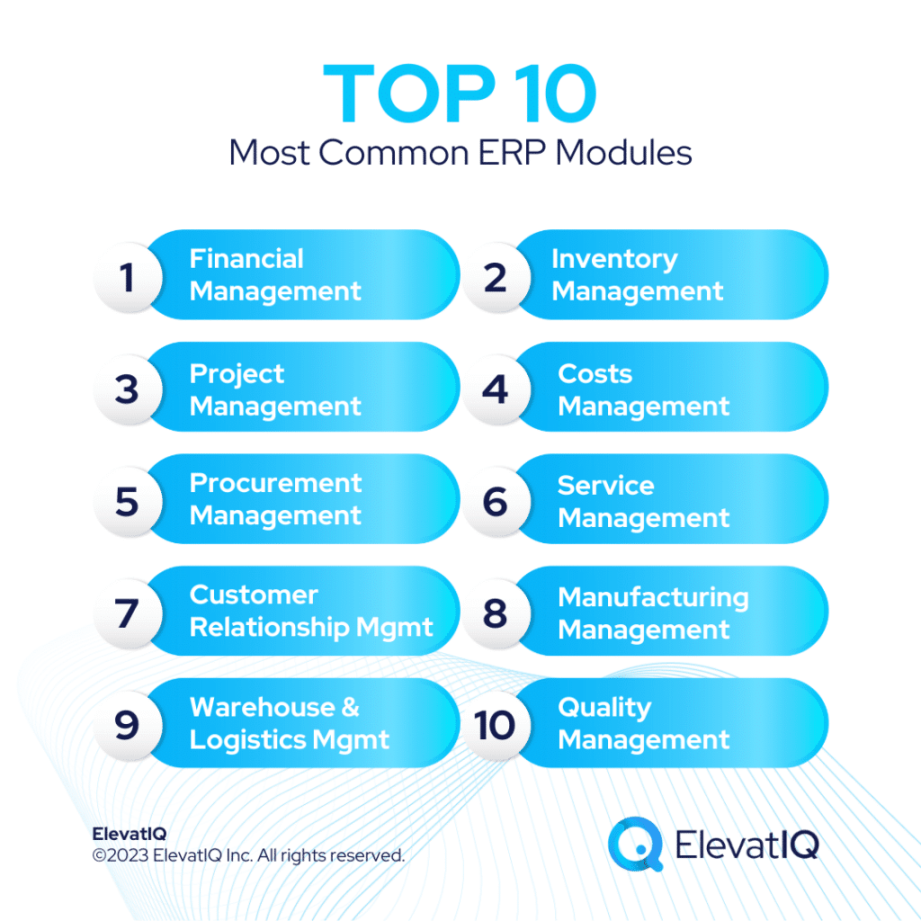In today’s competitive business landscape, streamlining operations and maximizing efficiency are crucial for success. This is where Enterprise Resource Planning (ERP) systems come into play. ERP systems function as the central nervous system of a business, integrating and automating core business processes across various departments.
Unveiling the Power of Common ERP Systems

ERP systems encompass a broad range of functionalities, including:
Financial Management: Streamline accounting processes, automate tasks like bill payments and invoicing, and generate real-time financial reports.
- Inventory Management: Gain real-time visibility into inventory levels, optimize stock control, and manage warehouse operations efficiently.
- Customer Relationship Management (CRM): Manage customer interactions, track leads and sales opportunities, and enhance customer service experiences.
- Supply Chain Management (SCM): Oversee the entire supply chain process, from procurement to delivery, ensuring timely product availability.
- Human Resource Management (HRM): Automate HR tasks like payroll processing, manage employee leave requests, and track employee performance.

Exploring the Landscape of Common ERP Systems
With a plethora of ERP systems available, choosing the right one for your business needs is critical. Here’s a glimpse into some of the most common ERP systems:

Oracle NetSuite
A cloud-based ERP solution ideal for medium and large businesses. NetSuite offers a comprehensive suite of functionalities, including financials, CRM, inventory management, and business intelligence. Its scalability makes it a suitable choice for businesses with growth aspirations.
SAP S/4HANA Cloud
Another prominent cloud-based ERP system, SAP S/4HANA caters to large enterprises. It boasts in-memory computing technology for real-time data analysis and superior performance. SAP provides industry-specific solutions, making it a strong contender for businesses in specialized sectors.
Microsoft Dynamics 365 Business Central
Microsoft Dynamics 365 Business Central caters particularly well to small and medium-sized businesses. This cloud-based ERP system offers robust core functionalities like financials, inventory management, and project management. Its integration with other Microsoft products makes it a seamless choice for businesses within the Microsoft ecosystem.
Delving Deeper into Industry-Specific Solutions
While the aforementioned ERP systems offer a comprehensive feature set, some businesses may benefit from industry-specific solutions. These solutions cater to the unique needs and challenges of particular industries, providing a more tailored fit.
For instance, companies in the manufacturing sector might look for ERP systems with robust production planning and control capabilities. Healthcare organizations might prioritize solutions that integrate seamlessly with electronic medical records (EMR) systems.
Choosing the Right ERP System: A Strategic Decision
Selecting the right ERP system necessitates careful consideration of your business requirements, budget, and future growth plans. Here are some key factors to ponder:
Business Size and Complexity: The needs of a small business will differ significantly from those of a large enterprise. Choose an ERP system that scales along with your business growth.
- Industry-Specific Needs: Consider solutions with functionalities tailored to your specific industry to optimize efficiency and gain a competitive edge.
- Deployment Options: Cloud-based or on-premise deployment options each have their advantages and disadvantages. Consider factors like IT infrastructure, data security needs, and budget constraints when making this decision.
- Scalability and Integration: Ensure the ERP system can accommodate future growth and integrate seamlessly with existing business applications.
- Implementation and Support: Evaluate the vendor’s implementation expertise and ongoing support services to ensure a smooth transition and maximize the system’s value.
The Journey from Implementation to Transformation
ERP system implementation is a complex endeavor that demands meticulous planning, change management, and user training. Successful implementation hinges on a clear understanding of business processes, stakeholder buy-in, and ongoing system optimization.
The Tangible Benefits of ERP Systems
Investing in an ERP system can yield substantial benefits for your business. Here are some of the most noteworthy advantages:
Enhanced Operational Efficiency: Streamlined workflows, automated tasks, and improved data accessibility lead to significant efficiency gains.
- Improved Decision-Making: Real-time data insights empower informed decision-making across all levels of the organization.
- Increased Visibility and Control: Gain complete visibility into your business operations, from inventory levels to customer interactions, enabling better control.
- Improved Customer Satisfaction: Streamlined processes and better data management translate into enhanced customer service experiences.
Unveiling the Potential Challenges of ERP Systems
While ERP systems offer immense benefits, there are also challenges to consider. These include:
Implementation Costs: ERP system implementation can be a significant investment, encompassing software licensing, customization costs, and consulting fees.
- Change Management Challenges: Transitioning to a new ERP system necessitates change management strategies to ensure user adoption and minimize disruption.